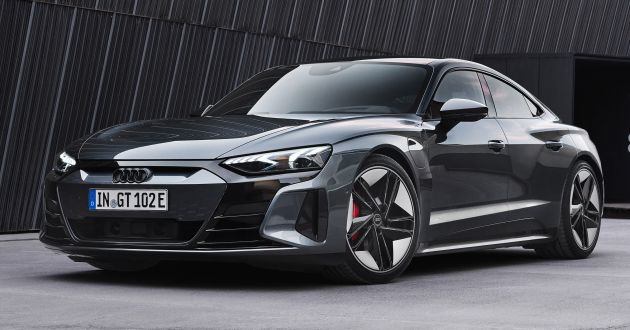As progress is made in any segment of automobiles, an ‘arms race’ of numbers tends to happen as an effect of brands striving to outdo one another. Battery range may no longer be one of those figures, however, said Audi CEO Markus Duesmann to Roadshow.
“Putting huge batteries for thousands of kilometres [of range], I’m not sure that this is a trend that will go on. Later on [battery range] will go down because charging infrastructure becomes more dense, as well as because of customer experience,” he said.
Duesmann compares how drivers of internal combustion engine vehicles refuel to how EV drivers recharge their vehicles, observing that replenishing energy stores for an EV takes some getting used to compared to refuelling ICE vehicles.
“Today you go to the gas station and get your fuel and its very natural how you get your energy for driving. With electric cars it’s not that natural, you have to adjust your behaviour a bit,” he said. Once users get used to that, battery sizes can shrink again because [carmakers] currently make EVs too heavy, too expensive and too big, he added.


It appears that electric vehicles will follow internal combustion engine vehicles in downsizing, then, though for now the e-tron GT – itself considerably sized at 4,989 mm long, 1,964 mm wide, 1,413 mm tall with a 2,898 mm wheelbase (2,900 mm for the RS e-tron GT) – bears the EV flag for the Ingolstadt-based automaker.
Its 85 kWh lithium-ion battery pack offers up to 487 of range on the WLTP test cycle, and the quickest 270 kW DC charging brings a 100 km range from a five-minute charge, or 5-80% state-of-charge in 22.5 minutes. Pairing a 238 PS front motor with a 456 PS rear motor, the most powerful version in RS e-tron GT yields 598 PS/830 Nm in total system output or 646 PS in boost mode. The result is 0-100 km/h in 3.3 seconds, and a 250 km/h maximum.
Audi has great hopes for the e-tron GT, though Duesmann hopes to manage expectations in saying that its fully electric four-door will be built in the same facility as the R8, in smaller numbers than Porsche will do for the Taycan, which shares its underpinnings with the e-tron GT. The market looks promising in Europe, as the e-tron was not just the best-selling EV in the region, but the best-selling vehicle in Norway last year.
GALLERY: 2021 Audi RS e-tron GT















GALLERY: 2021 Audi e-tron GT quattro






























The post Future EVs will offer less battery range – Audi CEO appeared first on Paul Tan's Automotive News.


0 Comments